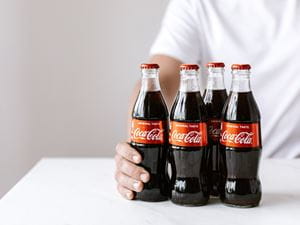
We rarely discuss how food relates to our mental health. We worry about food leading to health issues, like gastrointestinal or cardiovascular issues, but did you know that different drinks and foods can worsen anxiety spikes and bouts of depression?
There are drinks and foods that psychiatrists and therapists, who’ve spent their careers advising people on mental wellness, typically avoid or consume moderately for their mental health. Remember that these foods and drinks can be consumed occasionally and not be linked with adverse mental health concerns. It’s essential to remember that moderation is key.
How does food affect your mental health?
You may recognize the phrase, ‘You are what you eat.’ Still, do you realize that what you eat affects you? There is credible evidence that mental health and food are closely related. It’s not only about the stress that happens when you feel like you’ve eaten too little or too much. Most people consciously think about what they’re eating constantly. You consider how it affects the environment, your heart, and everything else. However, we rarely consider the impacts on our mental health and brain.
A 2019 study concluded that specific foods, like antioxidants and other nutrient-rich foods, can treat depression. Adequate vitamin B12 and folic acid were also linked with preventing the risk of depression. Vitamin D deficiency led to increased depression and a 50 percent increase in suicide rates. Another interesting statistic is that 90 percent of serotonin receptors are in the gut. These receptors release serotonin and chemicals like acetylcholine and dopamine, significantly affecting someone’s mood. With that in mind, here are some foods that can negatively impact your mental health.
Multiple cups of expresso or coffee.
For some people, too much caffeine can harm your anxiety. Suppose you have multiple stressors or are prone to feeling anxious. In that case, over-caffeination can cause an increased cortisol response, leading to adrenal fatigue, a recipe for persistent burnout, stress, and sleep issues. Research indicates that drinking over 250 milligrams of caffeine daily, or two and a half cups, could negatively affect anxiety, so keeping your coffee consumption under two cups is best. For those who get anxiety spikes or jitters from coffee, drinking matcha is an excellent alternative since it gives most people a feeling of calm alertness due to a compound called L-theanine.
Diet soda.
If you’re trying to look out for your mental health, you may want to limit your diet soda consumption. Everyone loves a cold diet soda on a hot day, but the health fears outweigh the benefits. High-sugar sodas aren’t good for your health, but diet sodas may be worse. Many of them have phenylalanine, an added chemical that messes up brain neurochemistry by stopping the production of dopamine and serotonin, two necessary molecules for a good mood. Additionally, diet sodas have artificial sweeteners like aspartame, a known neurotoxin and could raise stress hormones and increase the amount of free radicals in your brain.
Alcohol.
Occasional drinking isn’t the worst thing, but you should do your best to avoid alcohol when considering your mental health. Alcohol consumption is typically linked to social events. Still, alcohol is a depressant and can lead to an adverse mood state or the feared “hangxiety,” which refers to the period when your body is recovering from a hangover, and your cortisol levels are elevated.
High-processed foods.
Eating certain processed foods, like pancake mix from the grocery store, can cause anxiety spikes. Everyone loves pancakes at breakfast time, but your body can generate anxiety and become inflamed when you eat pancakes two days in a row. You could have trouble concentrating, your mood changes, and you don’t feel relaxed. You may also feel bloated, which can negatively affect your mental health. Ultra-processed foods can change bacteria in the gut. This bacteria cooperates with our immune system, leading to chronic inflammation. Outside of bloating, inflammation can also contribute to depression.
Even the healthier options in the frozen food section can lead to depression symptoms. These meals can contribute to gut inflammation, where most serotonin is produced. When serotonin is compromised, so is your mental health. When eating ‘healthy’ frozen dinners, you might think you’re consuming something healthy and would have more energy in the short term. However, you may experience a crash with anxiety and mild depression, leading you to choose to prepare whole foods over frozen meals.
Candy and sugary foods.
Some people try their best to steer clear of candy. They won’t eat candy like Sweet Tarts or candy corn because it’s very sugary, and increased sugar consumption can increase inflammation in the body, which is linked to depression. A 2015 study suggested that starchy and sugary foods can contribute to depression. That being said, eating natural sugar, like the kind found in fruits, differs from sugar found in candy. One study discovered that people who snack on fruit are less likely to report depression symptoms. While candy and other refined carbohydrate sources can be detrimental to mental health, the same can’t be said for all sugar sources.
White bread.
It may be time to reconsider the kind of bread you use in your sandwiches. White bread is made of heavily processed white flour, which eventually turns into sugar in your body, leading to energy highs and lows that may be bad for anxiety and depression. However, there’s no need to worry. Try using whole-wheat bread instead of white; you should be okay.
Completely cutting these foods out of your diet may seem unrealistic. However, it may be best to cut down on the intake of these foods that are detrimental to your mental health and try adding some brain-boosting foods to your diet.

